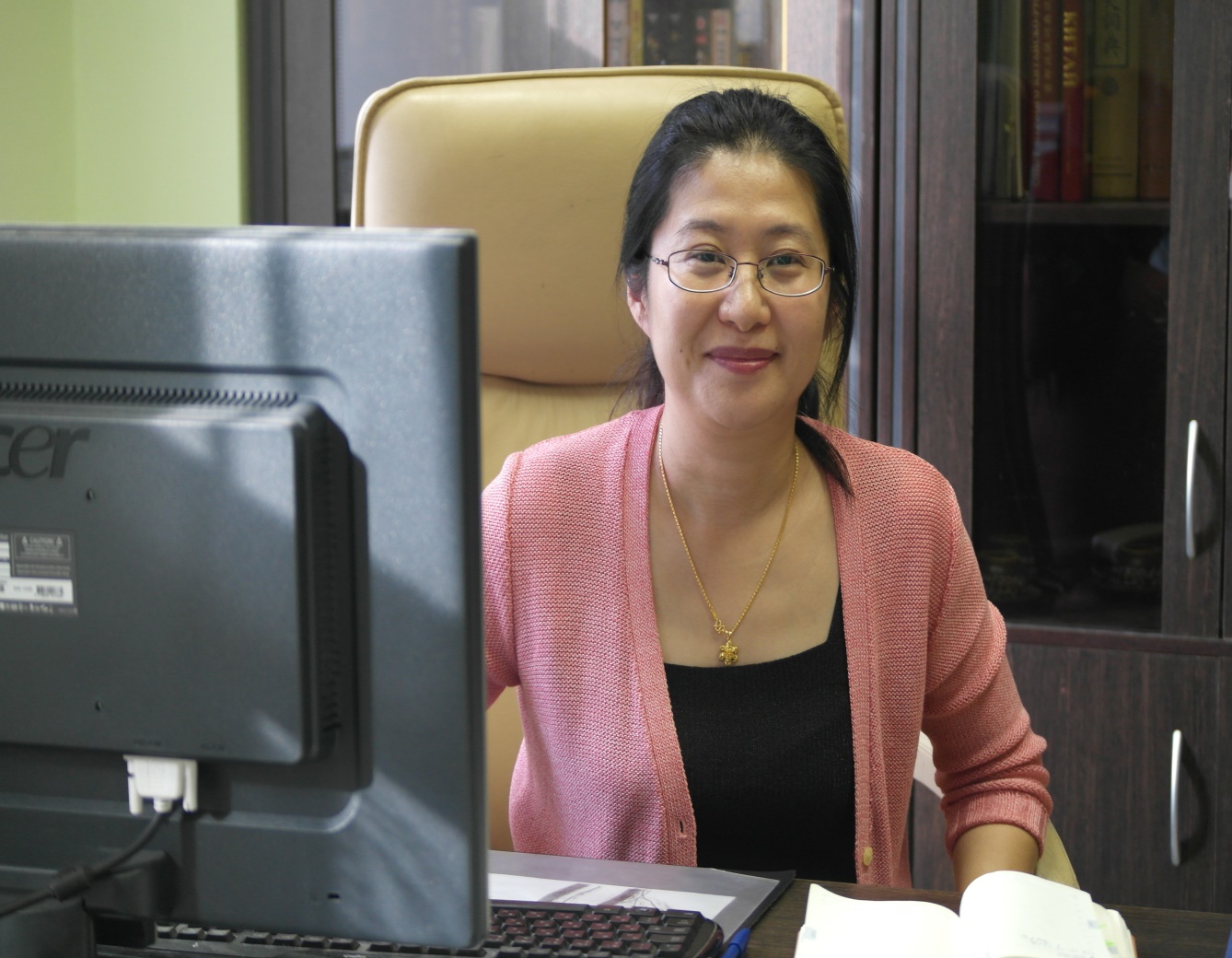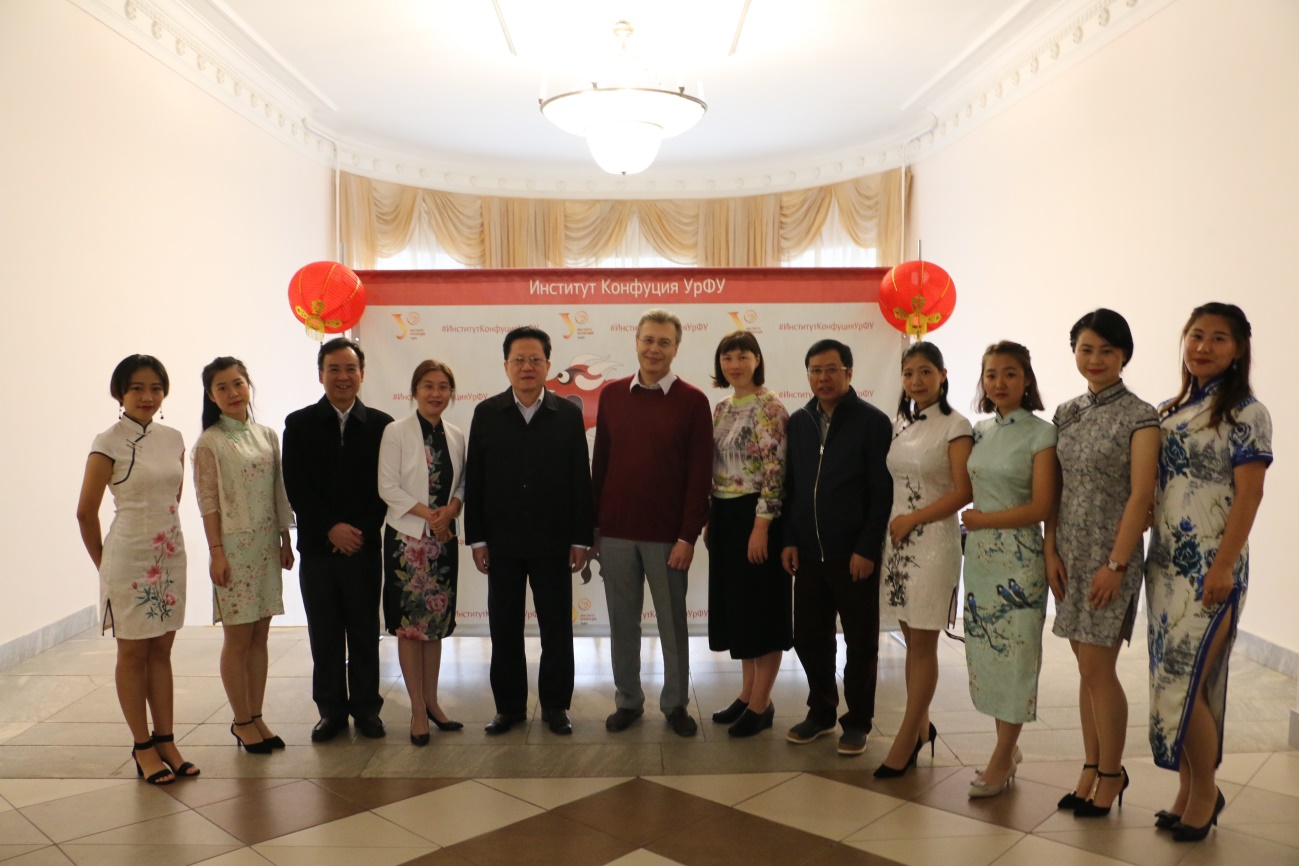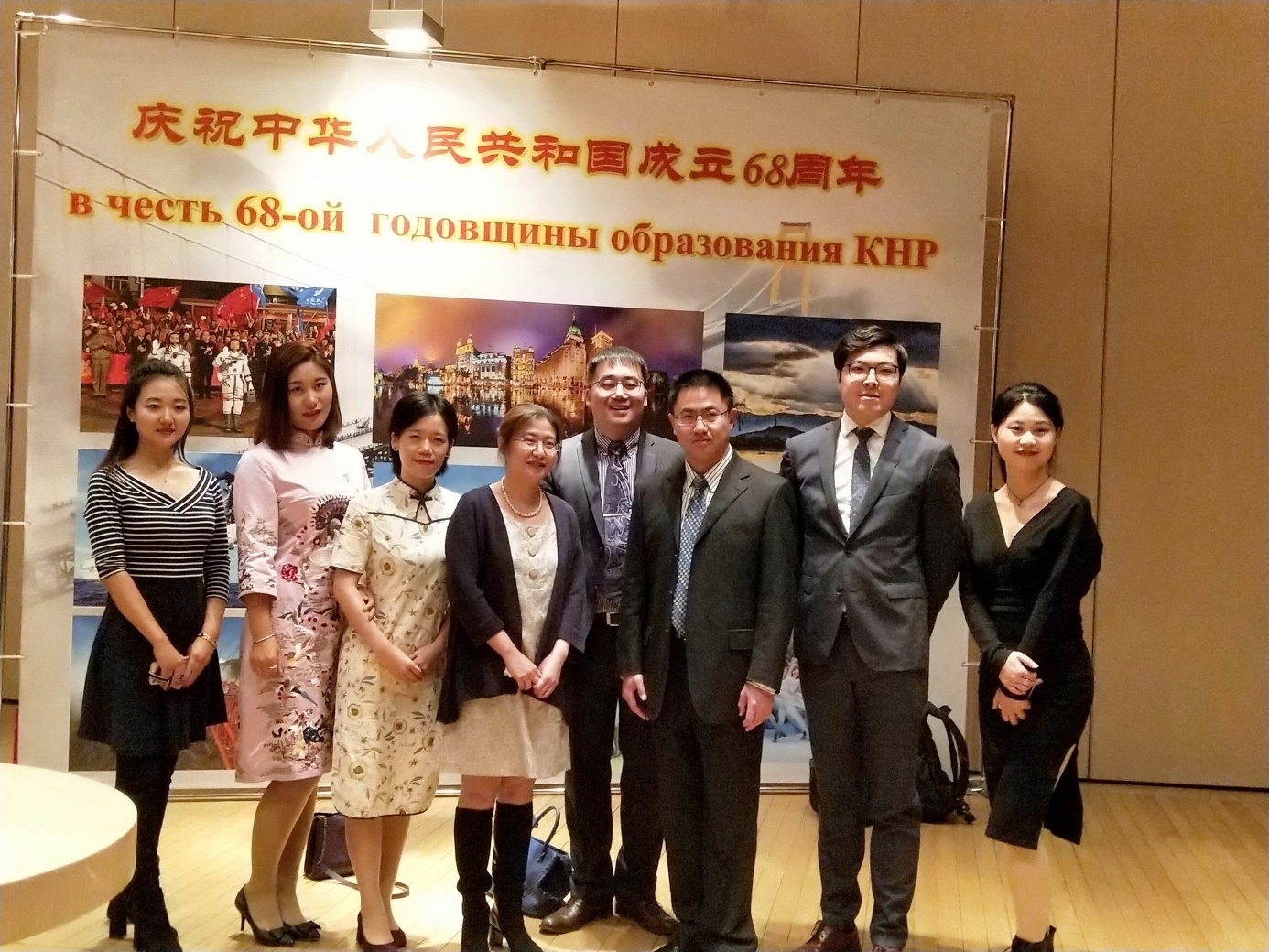Editor: The report series named “Female Envoys of Chinese Culture” are carried out by the Press Association to commemorate this year’s International Women’s Day, featuring three female scholars of GDUFS who just returned last semester from the university’s overseas Confucius Institutes. In the series, ZHENG Qingqun, CHEN Hui and YU Liuyi will tell us their encouraging and inspiring stories in three different countries about how they have disseminated the cream of Chinese culture and contributed to the amiable relations between China and other civilizations – despite culture shock and other barriers.
CHEN Hui is a professor of Russian of FELC (Faculty of European Languages and Cultures). Since 2014, she has served as the Chinese Dean of the Confucius Institute at the Russian Federal University of Ural, and will complete her tenure in August 2018.
Now nearing the end of her four-year term, recalling the four years of work and life, CHEN Hui told us: “The greatest feeling is the cross conversion and integration between strangeness and familiarity.” From the warm southern country to the cold northern country, from the three-foot platform, teachers become managers who need to plan. The teacher's main responsibility is to educate students and do a good job in scientific research. However, more needs to be done on the platform of the Confucius Institute. The main purpose of the Confucius Institute is to promote Chinese language and Chinese culture. The focus of the Dean’s work is to organize teaching and carry out cultural activities.
Not only did CHEN have to participate in teaching but also organize teaching, set up courses and syllabus, and help volunteers quickly step into their roles. In addition to this, CHEN also participated in the management of the Confucius Institute. In order to further develop the institute, the original system needed to be improved.
Talking about the improvement of the original system, CHEN admitted that this was a more difficult task in her term of office and that both Chinese and foreign parties needed to negotiate meticulously. "This process has been very difficult." However, after all, there are certain problems in the operation of the Confucius Institute, and it is difficult to further develop without further changes and improvements. In the face of difficulties, she actively sought solutions. In order to mobilize the active participation of foreign parties, based on the existing management rules and regulations of the cooperating foreign universities, foreign parties are required to submit drafts, and the Chinese team to revise and supplement the draft. After a long period of four years of negotiating, the implementation agreement has finally been successfully signed. Through this agreement, the personnel system of the Confucius Institute has been clearly defined, and the staffing standards for the Confucius Institute and the criteria for the release of personnel remuneration have been determined.
Of course, the work has not always been unfamiliar and difficult. “There are also familiarities, because management can be seen everywhere in life, and many times it is analogous.” For example, managing volunteers, CHEN smiled and said: “In fact, it is similar to managing children.” All of us need to patiently communicate and arrange things properly." "If you do it with your heart, you don't depend on people. You will calm down and come slowly. Everything will get better."

CHEN Hui
Because of this intention, CHEN has achieved fruitful results in the four years of the Confucius Institute. "The most exciting achievement is, of course, the development of the Confucius Institute." From the time of taking office in 2014, there were fewer than 400 students, and after 2016, the number of students totaled over a thousand people; the number of participants in HSK ( “汉语水平考试” in Chinese, meaning Chinese Proficiency Test) increased from 77 in 2014 to 533 in 2017...
Behind these figures is the growing strength of the motherland, the increase in international influence year by year, and her hard work day after day: in terms of teamwork, facing the Russian staff with different cultural backgrounds and working habits, she chose to seek common ground while shelving differences, mobilizing their enthusiasm through the establishment of a reasonable reward system. The Confucius Institute launched into cyberspace in 2014, and after experimenting with the effect of different social platforms, she created a website to display the Institute’s information and videos on learning Chinese. The website had 10,000 followers by 2016. At the same time, she has also spared no effort to organize various activities with Chinese characteristics, such as the “New Year Spring Culture Series” and Chinese song competitions, Sino-Russian photography competitions, etc. As for teaching, she repeatedly stressed the importance of imparting knowledge to volunteer teachers. At the same time, the teaching plan needs to be different from person to person and formulate suitable programs; there are also innovations in the recruitment target, from the previous only recruiting fee-payers to launch free Chinese language training courses... These initiatives have contributed to the increasing popularity of the institute, and also the increasing number of students every year.

CHEN Hui (fourth form left) and the volunteers of local Confucius Institute
Chen Hui's research direction is Russia-Soviet literature, and the shocking nature of Russia-Soviet literature fascinates her. "Russia's elite culture and mass culture are two-point opposition, literature is contradictory, and the thinking on the issue is profound and thorough." This shock was especially felt in Russia over her four years there. In that time, she traveled to most of Russia: “Walking in the city, one can often observe many different elements, such as people’s livelihood and architecture”. She enjoys the process of strolling in the city. This process is accompanied by awareness and perception of the pulse of the city.
"My favorite Russian city is St. Petersburg and I have been there several times." St. Petersburg is called "the capital of the Empire" and represents the most glorious era in Russian history. In the city, there are many Baroque and Gothic architectures left behind by the glorious era. The majestic beauty of the imposing manners shows past powers to the past visitors. Walk on the streets of St. Petersburg, blowing cool winds along the banks of the Neva River. “Sometimes it feels like every brick has a long and rich history with an infinite story.”
Reading thousands of books is not as good as walking a thousand miles, and the various landscapes seen during the trip have also strengthened her calm attitude towards life: “Frankly facing everything, the key is to be honest with yourself, and to think about what the heart is.” She is thankful for her four years of working experience in Russia which not only provided her with a new vision, but also allowed her to grow up.

CHEN Hui (fourth from left)
